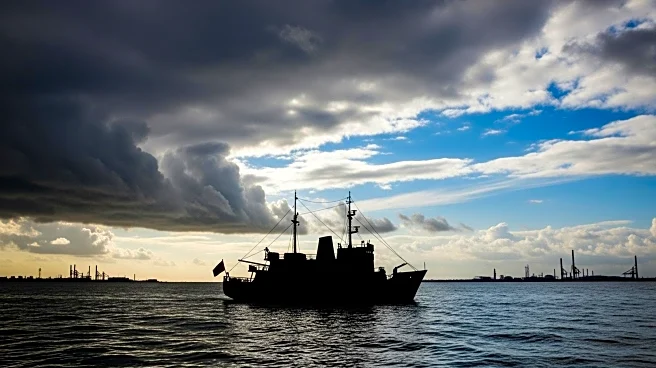What's Happening?
China has imposed sanctions on five US-based subsidiaries of the South Korean shipping company Hanwha Ocean. This action is part of China's response to what it perceives as cooperation between Hanwha Ocean and the US government in restricting China's maritime and shipbuilding industries. The sanctions were announced by China's Ministry of Commerce, which accused Hanwha's subsidiaries of assisting the US in its 301 investigation and subsequent measures against China's maritime sector. This development marks an escalation in the ongoing trade tensions between the US and China, particularly in the strategic shipping industry.
Why It's Important?
The sanctions highlight the growing strain in US-China relations, particularly in the maritime sector, which is crucial for global trade. By targeting Hanwha Ocean, China is sending a message to other companies that may cooperate with US policies against China. This could lead to increased caution among international businesses operating in China or with Chinese partners. The move also underscores China's willingness to use its anti-foreign sanctions law to counteract perceived threats to its economic interests. The impact on the shipping industry could be significant, potentially affecting global supply chains and trade routes.
What's Next?
The sanctions could lead to further retaliatory measures from the US, potentially escalating the trade conflict. Companies involved in the maritime industry may need to reassess their strategies and partnerships to navigate the evolving geopolitical landscape. Additionally, other countries and businesses may face pressure to choose sides in the US-China trade dispute, which could have broader implications for international trade and diplomacy.
Beyond the Headlines
The sanctions reflect deeper geopolitical tensions between the US and China, with implications for global economic stability. The strategic importance of the maritime industry means that disruptions could have far-reaching effects on international trade and economic growth. The situation also raises questions about the role of international law and regulations in managing trade disputes and the balance of power between major economic players.











